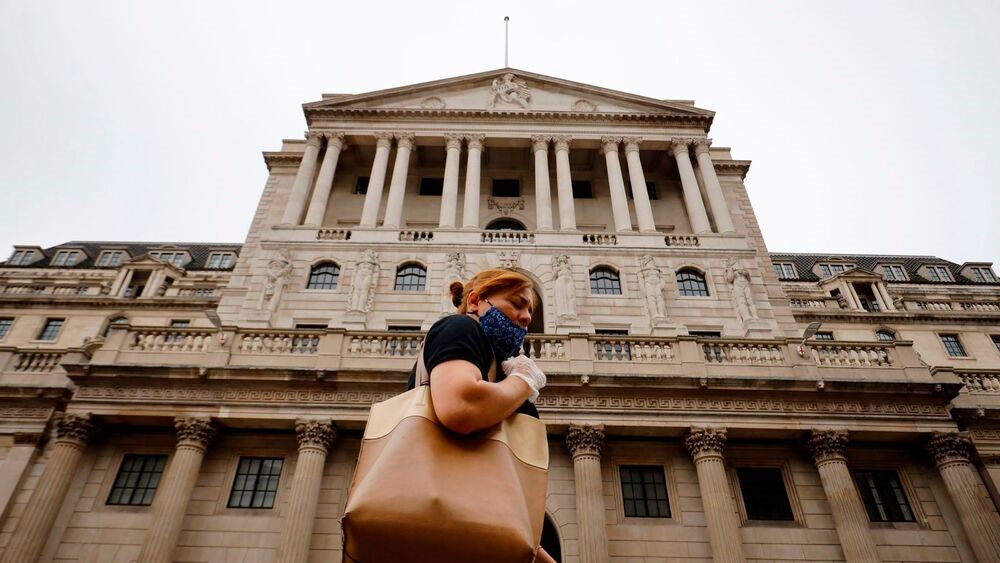UK likely heading towards a year-long recession
After the Office for National Statistics (ONS) announced that the data showed UK GDP had dropped by 0.1% between April and June, the Bank of England stated that the UK is heading towards a recession.
-

Bank of England (The Standard)
Official data showed Friday that the UK GPD shrank in the second quarter, highlighting a possible recession in the upcoming quarter.
The Office for National Statistics (ONS) said that, according to the data, the GDP in Britain dropped by 0.1% between April and June. In the previous quarter, the UK GDP witnessed a rise of 0.8%. It is worth noting that the ONS also stated that in June, the UK economy fell by 0.6%. A recession is marked by a GDP fall in two consecutive quarters.
By the end of 2022, the Bank of England (BoE) predicts to enter a long recession for at least a year's time. Currently, Britons are faced with staggeringly high costs of living as they overcome the worst inflation they have witnessed in decades.
"With May's growth revised down a little and June showing a notable fall, overall, the economy shrank slightly in the second quarter," ONS director of economic statistics Darren Morgan said. "Health was the biggest reason the economy contracted as both the [Covid] test and trace and vaccine programs were wound down, while many retailers also had a tough quarter."
Morgan further argued that the recession was "partially offset" as a result of "growth in hotels, bars, hairdressers and outdoor events across the quarter, partly as a result of people celebrating the Platinum Jubilee" that marked 70 years of Queen Elizabeth II's rule.
A new PM in the UK
The economic situation across the UK is being worsened by the political instability that plagues the country. After ONS data was made public, Finance Minister Nadhim Zahawi announced that he was "determined to work with the Bank of England to get inflation under control and grow the economy".
However, presiding PM Boris Johnson's office made a clear statement that he would not be involved in mandating "major fiscal interventions" prior to his stepping down next month.
Johnson was absent from the country when the BoE warned of an imminent recession last week. Johnson had taken his wide on a belated honeymoon celebration to Slovenia at a time when most Britons are struggling to make ends meet.
Zahawi, too, was absent during that time period in which the central bank hiked interest rates by the biggest margin within the last few decades in hopes of containing inflation.
Johnson is set to leave office on September 6 as either Liz Truss or Rishi Sumak, both conservatives, are set to succeed him. However, the two candidates have also clashed as to how to address the ongoing crisis.
On one hand, Truss intends to implement an emergency budget to slash taxes and reassess the independent BoE's mandate to contain inflation.
Sunak, on the other hand, said that tax cuts backed by increased borrowing would drive the bank to raise interest rates even further. He emphasized the need of maintaining fiscal restraint but first, contain price pressures.
Read more: The UK economy is crushed - Analysts

 3 Min Read
3 Min Read








